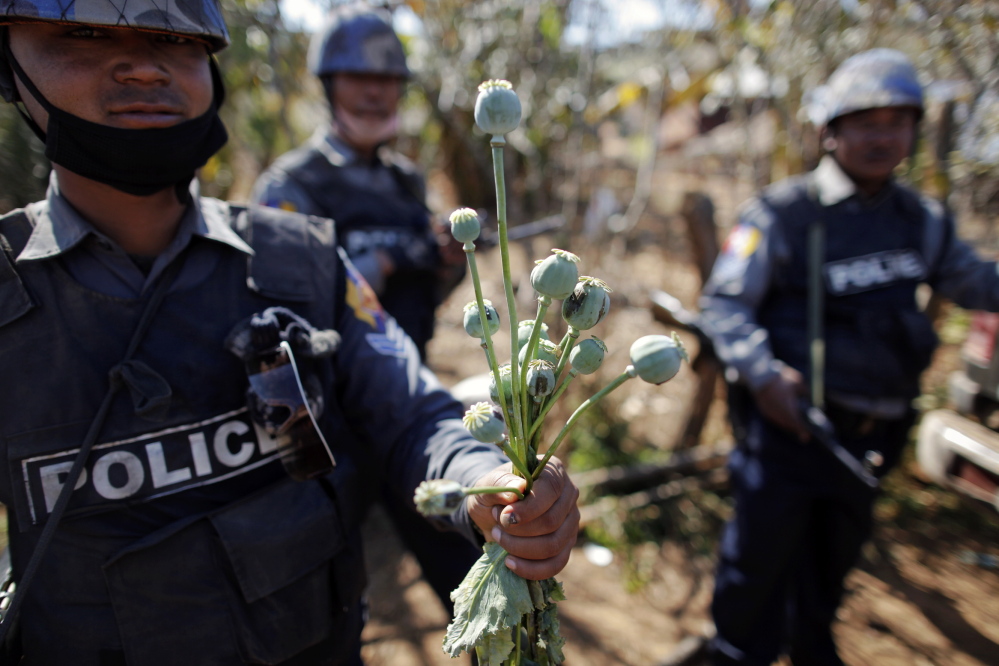BANGKOK — Official efforts to stamp out opium production in Myanmar are falling flat because poor farmers don’t have alternative ways to make a living, a U.N. agency said Wednesday.
The U.N. Office on Drugs and Crime estimated in its annual Southeast Asia Opium Survey that Myanmar will produce 870 metric tons of opium in 2013, remaining the world’s second-largest grower after Afghanistan. That would be a 26 percent rise over 2012 production.
The agency said last month that Afghanistan’s opium production this year was 5,500 metric tons, a 49 percent rise.
The report said rising demand in Asia for illicit drugs has also have fueled Myanmar’s increase.
The U.N. agency said the trend is particularly alarming as economic integration and improved infrastructure binding Southeast Asia and southern China facilitate opportunities for criminal trafficking.
The drug-producing heartland where the borders of Myanmar, Thailand and Laos converge, the infamous Golden Triangle, is also a major source of methamphetamine as well as heroin, which is derived from opium.
“The organized criminal networks that benefit from Southeast Asia’s illicit drug trade are well positioned to take advantage of regional integration,” UNODC representative for Southeast Asia and the Pacific Jeremy Douglas said in a statement.
The report said that just over 9 metric tons of heroin was seized in East and Southeast Asia in 2012, compared to 6.5 metric tons in 2010, while 2.7 metric tons of opium was seized in 2012 compared to 2 metric tons in 2010.
“The figures make clear that efforts to address the root causes of cultivation and promote alternative development need to be stepped up,” UNODC executive director Yury Fedotov said in a foreword to the report.
“Surveys of farmers in poppy-growing villages indicate that the money made from poppy cultivation remains an essential part of family income. Villagers threatened with food insecurity and poverty need sustainable alternatives, or they will continue out of desperation to turn to growing this cash crop.”
The report also noted that “opium cultivation is generally linked to the absence of peace and security, which indicates the need for both political and economic solutions.” A reformist, elected government in Myanmar, which in 2011 replaced almost five decades of military rule, is striving to make peace with ethnic minority rebels who have been battling for autonomy for decades.
Myanmar in 1999 declared a plan to eliminate illicit crop production by 2014, and production slipped to a low of 315 metric tons in 2006, but since then has been increasing.
The report recalled that Myanmar in the 1980s had been the world’s largest producer of illicit opium.
Copy the Story LinkSend questions/comments to the editors.



Success. Please wait for the page to reload. If the page does not reload within 5 seconds, please refresh the page.
Enter your email and password to access comments.
Hi, to comment on stories you must . This profile is in addition to your subscription and website login.
Already have a commenting profile? .
Invalid username/password.
Please check your email to confirm and complete your registration.
Only subscribers are eligible to post comments. Please subscribe or login first for digital access. Here’s why.
Use the form below to reset your password. When you've submitted your account email, we will send an email with a reset code.